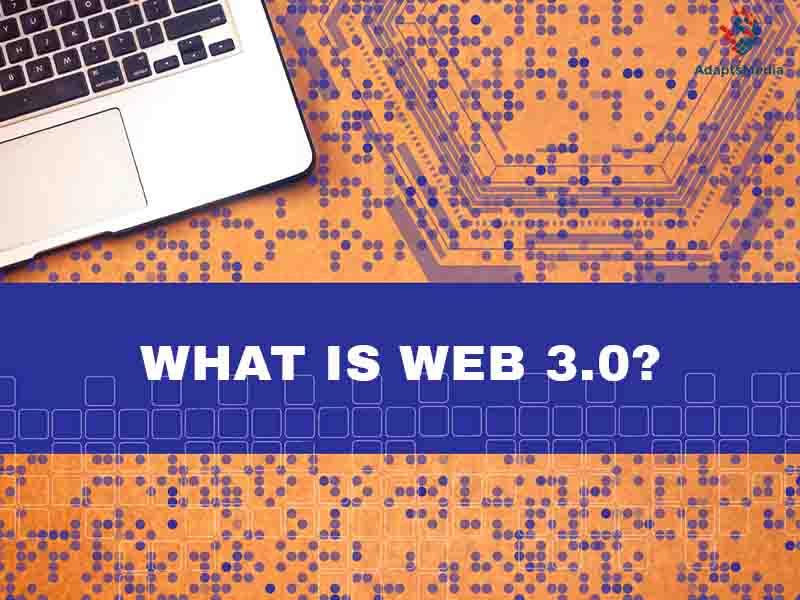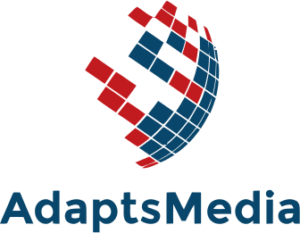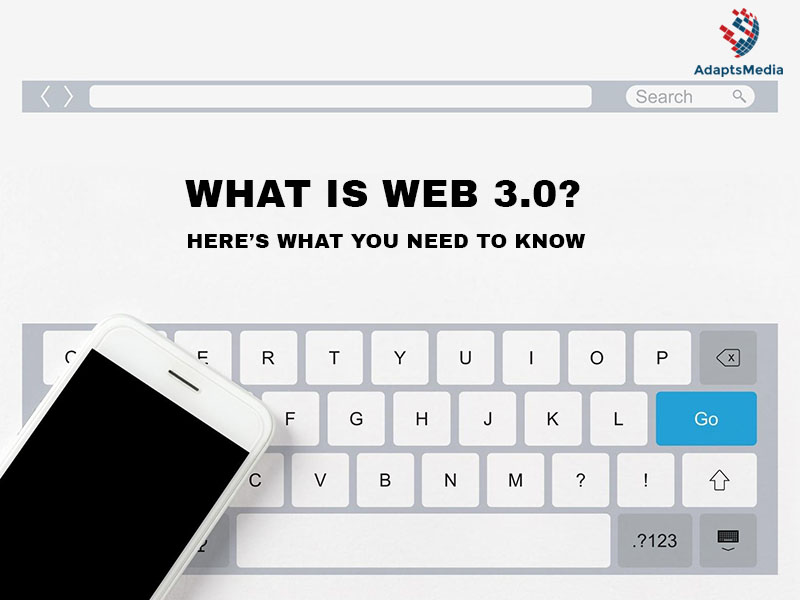If you’re familiar with the recent buzz about Metaverse or cryptocurrency, you must have come across the term Web 3.0. Considered to be the future of the internet, Web 3.0 is the new buzzword the world seems to have gone crazy about. So what is this Web 3.0, and why does it matter? We will find the answers to this question in today’s blog.
What is Web 3.0?
Before we talk about Web 3.0, let us discuss briefly Web 1.0 and 2.0 to have a better idea about it and how it is different from its predecessors. Web 1.0 is the first version of the internet launched in the world. Invented by Barners-Lee, Web 1.0 was the first version of the internet the world witnessed. It was a “read-only web” and could only be used to search for information about a topic and read it. It wasn’t ready to felicitate much user interaction.
Since then, the world has witnessed several technological leaps and the evolution of the internet. Web 2.0 was the result of these developments. As Berners-lee described it, web 2.0 was ‘read-write’ and had more features than its predecessor. Web 2.0 allowed content generation and user interaction, both of which were missing in web 1.0. Popular websites like Google, MySpace, YouTube, etc., are part of Web 2.0.
Now that we have a clearer picture of the history of the internet, let us see what Web 3.0 is going to be. According to Berners-Lee, Web 3.0 will be ‘read-write-execute’. Considered to be developed on the lines of Semantic internet, web 3.0 will be able to provide context to the data, something both its predecessor failed to provide. Using semantic technology, the data in web 3. 0 will be understood by humans in their natural language and be interpreted by software.
So what’s the buzz bout Web 3.0? Here are some of the benefits of this newer version of the internet:

- Decentralization of the Internet
At present, the internet is mostly controlled by tech giants. But with Web 3.0, we’ll see a decentralization of the internet. This means that the internet will not be controlled by tech leaders anymore but by the public. It would work on a peer-to-peer model, free from being governed by any centralized authority. This model of the internet will not only provide open development platforms to the developers but also reduce censorship.
- Incorporation of Blockchain Technology
Blockchain technology has recently garnered a huge fan base due to its credibility and distribution of power and responsibilities among a large group of Internet users instead of some. The technology which forms the foundation of cryptocurrency will also be the ground on which Web 3.0 is created.
Cryptocurrency is going to be the primary form of currency in Web 3.0. For example, decentralized Finance or shortly DeFi, a branch of Web 3.0 rewards users in Ethereum for their services. This means people can now earn a living by participating in several DeFi protocols, which might be both technical and non-technical. Along with the crypto coins, Non-Fungible Tokens or NFTs will become a mode of transactions in Web 3.0
- Open platform
Unlike the present Web 2.0, Web 3.0 will be an open-source platform where any open source software can be developed or viewed by a community of developers instead of a particular group.
- Removal of Third-Parties
As users will be the driving force of the internet in Web 3.0, the network won’t be dependent on any particular third party. This means that users can not only interact privately or publicly; buyers and sellers too won’t have to depend on any governing body to authorize their transactions.
- Personalized Experiences
Unlike Web 1.0 and Web 2.0, Web 3.0 will be hugely dependent on technologies like Artificial intelligence, Virtual reality, and Augmented reality. What this means is that, with the help of these technologies, users will be able to get a more personalized experience on Web 3.0 based on their likings and choices.
- Uninterrupted Services
One of the major problems with Web 1.0 and Web 2.0 is the interruptions of service. Web 3.0 will remove this problem to provide uninterrupted services to the users. It does so by removing a single point of failure. What this means is, the data will not be stored in a single place but on several devices across the world simultaneously, chances of facing issues like corruption of data, deletions, server failure will go down drastically, if not completely.
- Internet of Things
Unlike Web 1.0 and Web 2.0, which are primarily dependent on users exchanging information with each other, in Web 3.0, machines will take the lead role. With the help of Internet of Things technology, machines will be able to turn the internet into more of a physical being. What this means is, several devices ranging from cars to smartphones, laptops to electrical gadgets, drones to machinery, everything will share a mutual connection, thus providing a much more seamless experience to the users.
- Privacy
Breach of privacy is one of the major issues users are facing currently. With the onset of Web 3.0, this problem will also be eliminated. All thanks to blockchain technology. In simple words, the blockchain will remove the problems of a data breach, identity theft, etc.
- No More Filling Out Forms
While this might not seem to be a major issue, the removal of needing to fill out several registration forms will come as a boon for internet users. This is because, with Web 3.0, every user will have a personal profile that can be used across multiple platforms. So, not only will the users be free from having to fill the forms every time you register for some service, but it will also let them choose which personal information they want to share or hide from corporations. This will give them the authority to decide if they want any company to use the information about them or not.
- Metaverse
Metaverse is one of the most hyped concepts in the present times. Web 3.0 will play a major role in the new digital universe where users can live and interact regardless of geographical barriers.
Parting words
While it’s still in its development stage, Web 3.0 is surely going to go through a multitude of changes and bring about an evolution in the digital space. Looking at the early signs, it can be easily assumed that the new age of the internet will be more human-centric and rich in personalized services.
Don’t miss out on the opportunity to gain a competitive edge. Contact our team for expert assistance.

